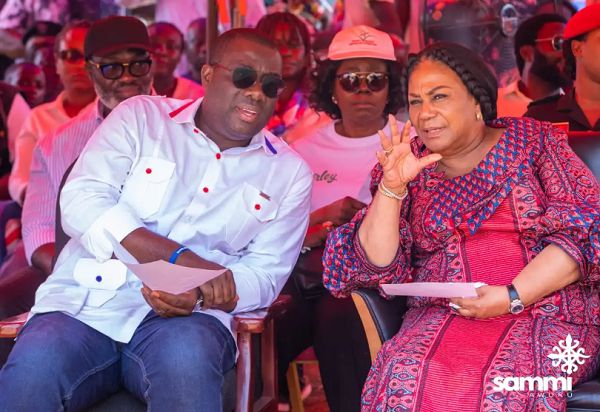The former Director-General of Ghana’s National Lottery Authority (NLA), Samuel Awuku, has responded to allegations of misappropriation of funds intended for charitable causes. An investigative report by The Fourth Estate, titled “NLA Good Causes? How Funds Meant for the Poor and Orphans Were Blown on Awards, Galas and the Rich,” claimed that the NLA’s Good Causes Foundation diverted funds to politicians, government offices, prominent individuals, and award ceremonies, rather than supporting the needy as mandated. One of the highlighted instances was a GHS200,000 donation to the Rebecca Foundation, the foundation of then-First Lady Rebecca Akufo-Addo, purportedly for the Annual First Lady’s Women’s Day celebrations. Awuku, now a Member of Parliament, has issued a detailed rebuttal, clarifying the rationale behind the donation and other expenditures.
Awuku contends that the contribution to the Rebecca Foundation was not for the Women’s Day celebrations, but rather a response to a public appeal by the former First Lady for support towards constructing a mother and child unit at the Komfo Anokye Teaching Hospital (KATH) in Kumasi. He emphasizes that this initiative aligned perfectly with the NLA’s Health Pillar, one of the four key areas supported by the Good Causes Foundation: Health, Education, Youth and Sports Development, and Arts and Culture. This explanation aims to rectify the perception that the funds were misused on celebratory events, instead portraying the donation as a contribution to a vital healthcare infrastructure project.
The investigative report further questioned donations and sponsorships provided to various entities, including the Office of the Attorney General, the Office of the Chief of Staff, the pro-NPP Danquah Institute, and footballer Asamoah Gyan, arguing that these did not fall within the Good Causes Foundation’s mandate. Awuku countered this claim by explaining that these sponsorships primarily served to promote the NLA’s Caritas Platform, a digital lottery system. He maintains that such promotional activities constituted a minor portion of the overall spending, approximately 5%, while the remaining 95% was dedicated to projects and donations directly benefitting individuals, communities, and institutions.
In his comprehensive response, Awuku sought to clarify the NLA’s spending practices during his tenure. He emphasized the significant contributions made by the Good Causes Foundation across its four pillars, highlighting numerous instances of support provided to hospitals, schools, and other institutions. He also detailed the NLA’s support for various sporting initiatives and cultural programs, underscoring their commitment to youth development and the promotion of arts and culture. The detailed list of beneficiaries and projects aimed to demonstrate that the NLA’s primary focus remained on fulfilling its mandate of supporting the needy and contributing to national development.
The core issue revolves around the interpretation of the NLA’s mandate and the appropriate use of funds allocated to the Good Causes Foundation. The investigative report framed the donations to government offices and prominent figures as a deviation from the foundation’s core mission of supporting the needy. Awuku’s response, however, positions these sponsorships as strategic investments in promoting the NLA’s platforms and raising awareness, ultimately contributing to the overall pool of funds available for charitable causes. The debate highlights the complexities of managing public funds designated for social good and the need for transparent and accountable practices.
The controversy surrounding the NLA’s spending underscores the importance of clear guidelines and stringent oversight for organizations tasked with managing funds for charitable purposes. The conflicting narratives presented by the investigative report and Awuku’s response call for a thorough examination of the NLA’s financial records and practices to determine whether the allocation of funds adhered to the organization’s mandate and legal framework. This case also emphasizes the crucial role of investigative journalism in holding public institutions accountable and ensuring that public funds are used responsibly and effectively for the benefit of the intended beneficiaries.














